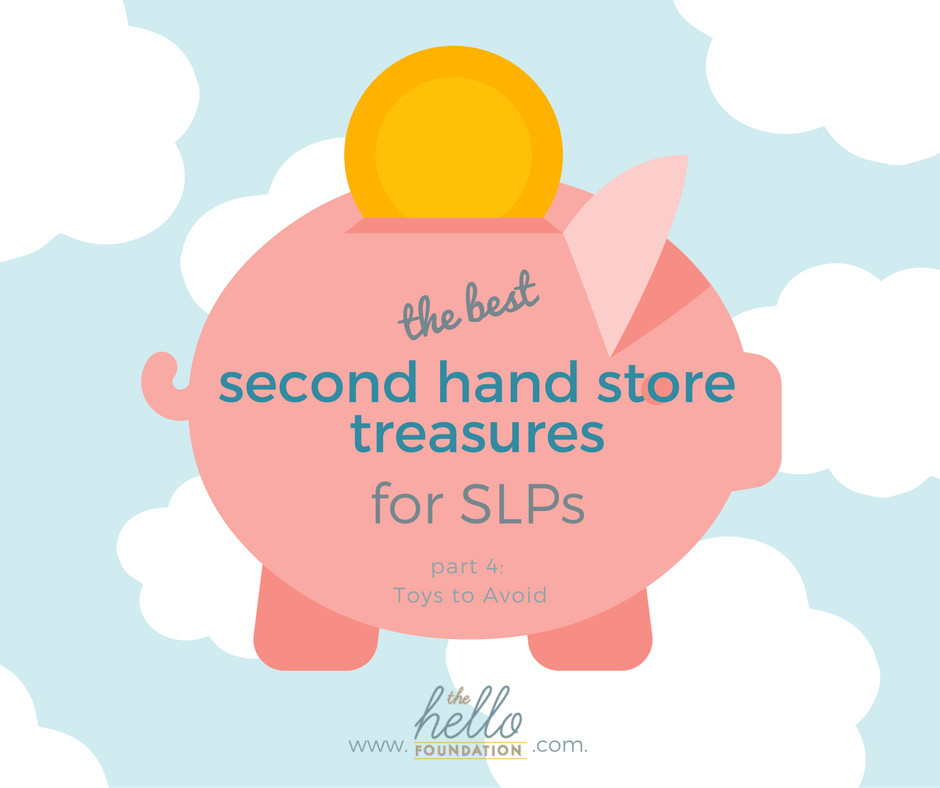Welcome to the final installment in our series on second hand treasures for speech therapy! Today, I’ll conclude with some tips on what to absolutely avoid when you’re out bargain shopping for therapy toys.
Second Hand Toys to Avoid
Some games or toys look so tempting on the shelf – but there’s a reason they are there. While they may look like a treasure, in reality…not so much. Case in point: Mousetrap. I see this game all the time at second hand stores and initially it seems like a great tool to work on sequencing, turn-taking, articulation, following directions, etc. But there are a million pieces (and chances are good some will be missing), the pieces you do have never stay together, and it never seems to work effectively even when you do have all the pieces.
Below are more “avoidable” toys that you might spot at second hand stores. That said, this is just our humble opinion. Other SLPs or professionals may have some clever ideas for using these in effective and successful ways.
Moustrap
Enough said.
Puzzles with 30+ (ish) pieces
Toddler puzzles, basic puzzles, and floor puzzles are great finds; puzzles with too many pieces will take a lot more time than most of us have (especially in the schools) and can distract kids from their target goals (e.g. as they hunt for the right piece). Also, you will likely not finish a whole 100-piece puzzle in one session resulting in the anti-climactic event of taking it apart before it’s complete, or tasked with finding a place to store it.
Early Learning games
These are actually debatable. If you’re planning to buy them and play them exactly as instructed, then chances are good you will wind up with an unmotivated and bored client. BUT – if you think out-of-the-box about these games, you may come up with some clever ways to repurpose the materials for other, more engaging activities.
Toys that make sound
Yes kids love them. And yes, they are good ways to engage some otherwise difficult to reach kids. BUT research shows that sound-generating toys are actually a detriment to developing speech-language skills for toddlers. So steer clear – or at the very least take the batteries out if you do buy a toy that produces sound.
This has been such a fun series to write. Thanks for reading, and as always, happy hunting!






